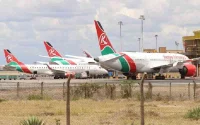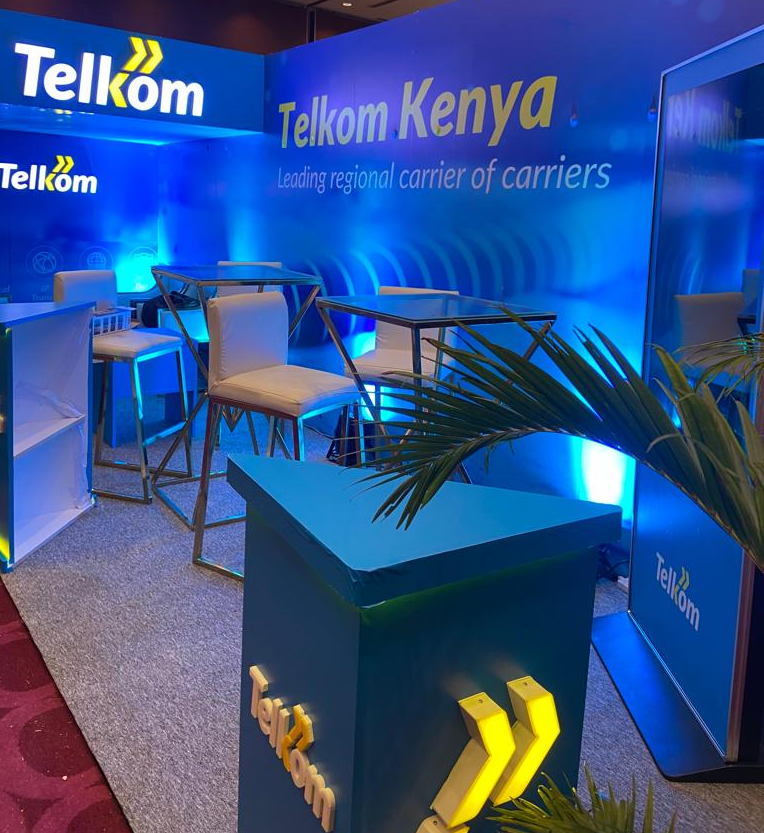Telkom has further expanded its 3G and 4G networks in Nairobi, Nakuru, Eldoret, Mombasa and Kisumu. This continued network roll-out and densification will see to the improvement of mobile connectivity to previously underserved towns and urban areas, that form part of Telkom’s expansion roadmap.
This exercise, part of Telkom’s network modernisation and infrastructure expansion programme that began in late 2016, has seen the telco launch its 4G network, progressively, to more than 30 towns and urban centres across Kenya. Moreover, it has also optimised its 3G network, by way of doubling and improving existing outdoor and indoor coverage, as well as capacity.
Data from the Communications Authority for the quarter ending December 2018, for the financial year 2018/2019, shows the country’s mobile Internet penetration rate stood at 106.2%.
Telkom CEO Mugo Kibati says: “It remains our objective to entrench our position as Kenya’s preferred Data network, which can only be achieved through the evolution of our network to match the intended service quality expectations of a future fit telco. Our customers and Kenyans should look forward to an even more superior experience once done with the upgrade.”
In addition to improving mobile connectivity, Telkom has also been making investments into its Fibre-to-the-Building (FTTB) Network, to improve the quality of service offered to enterprise and corporate customers. The focus will include investments into access, core, transmission and IT components; infrastructure that is crucial to further improving network reliability and accessibility.
Telkom’s network modernisation and infrastructure expansion programme has also seen it partner with Loon LLC, a sister company to Google and a subsidiary of Alphabet, to launch an innovative 4G/LTE access network service in Kenya, through the use of high altitude balloons acting as floating cell towers. These balloons will complement network coverage to strategic un-served and under-served areas in the country. The pilot to this service is expected to launch later this year, 2019.
Telkom has also been making significant investments into its national backbone and metropolitan transmission networks, as part of its infrastructure upgrade and expansion. This upgrade seeks to deliver triple back-up features, enriched service experience and extended reach to its wholesale customers in the East African market. This will not only enhance customer data experience but also boost reseller capacity to other telcos and Internet service providers across East Africa who purchase from Telkom. Telkom has also reviewed the number of maintenance teams along these critical routes, ensuring they are fully equipped to attend to downtimes efficiently and to also continuously check on the health of the infrastructure as a proactive maintenance measure.
Kibati says: “This demonstrates our commitment to connect the people that keep Kenya on the move with the provision of fast, reliable Internet. These metro loops will facilitate access to the Internet, which plays an important role in the lives of individuals and businesses. It further serves to entrench our position as Kenya’s preferred data network.”
Already, Telkom has rehabilitated its metropolitan network around key carrier routes in Nairobi, with minimal disruptions and has already laid out a new metro-loop to connect Mombasa to its national backbone as well as a 1,000 km redundancy backbone between Mombasa and Tororo, Uganda. Moreover, Telkom has a resilient 400G fibre capacity on its entire backbone that runs from Mombasa through Malaba to Tororo.
Kibati adds: “Telkom intends to set up similar fibre loops along strategic routes in large towns across the country, to meet the growing demand for broadband by businesses, homes and individuals.”
Early this year, the ministry of ICT, Telkom Kenya and its “DARE 1” (Djibouti African Regional Express) partners concluded the first raft of commercial negotiations in Djibouti, ahead of the implementation of a 4,000km, 36TB Terabyte fibre cable interconnecting Kenya to Djibouti. The largest ever capacity in the country and East Africa region.
Read: Auctioneers wield ruthlessness as Kenyans struggle in grim economy
Kibati states: “For broadband revolution to be a reality, the metropolitan bottleneck must be broken with architectural transformations that will enable us convert bandwidth demand into opportunities. As more and more applications are emerging, we must have matching or even better bandwidth in place.”













Leave a comment